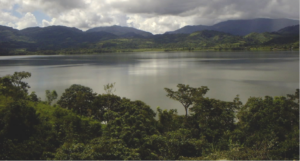New study to map YouTube’s role in the Brazilian elections

Experts at the University of Exeter, Instituto Vero and Mozilla are working to discover how YouTube is influencing the Brazilian federal elections – and how the social media platform potentially contributes to a disinformation media ecosystem.
The researchers will produce a crowdsourced map of Brazilian election coverage on YouTube using Mozilla’s RegretsReporter browser extension, which allows users to tag election videos along with the YouTube recommendations leading to and from each video.
Once collected, this data will allow researchers at the University of Exeter to identify the main narratives around the Brazilian elections, how they are spreading on the platform, and the motivations of those pushing the public agenda on YouTube.
The researchers will also pay close attention to how issues of racial injustice and misogyny emerge from the election content, supported by an advisory board of eight experts working on race, ethnicity and gender in Brazil.
Dr Chico Camargo, Lecturer in Computer Science at the University of Exeter, said: “We know that content on platforms like YouTube can significantly influence public perceptions and beliefs about democratic issues, by allowing disinformation and conspiracy theories to spread. But we don’t currently know how recommended videos might influence public opinion during an election campaign.
“As the first study of its kind, this project takes us closer to understanding how election information spreads on YouTube and the effects this has on people’s beliefs, motivations, and the candidates they vote for.”
The results will be shared between the first and second round of the 2022 elections, and in November, after the second round. They will be distributed with a network of key stakeholders – including Brazilian youtubers, journalists, civil society, and representatives of the Superior Electoral Court (TSE) – by Instituto Vero, a Brazilian non-profit focused on promoting a healthy information sphere in Brazil, will distribute these findings with its network of key stakeholders.
The project builds on a previous study by the University of Exeter and Mozilla, which found that YouTube was recommending harmful and misinformative content on its platform.
This project will not only shine a much-needed light on the relationship between technology, democracy and society, but it will also be the first study of its kind and stand as an example for future investigations in this field.



